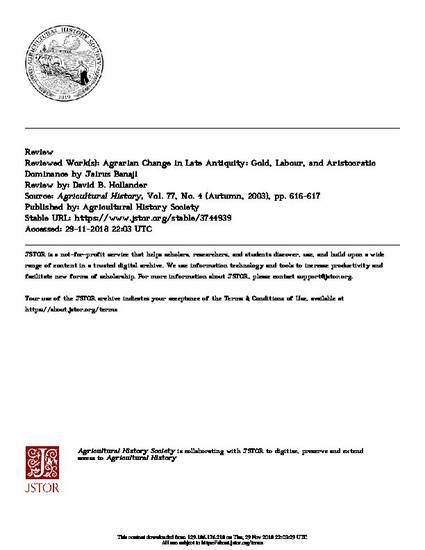
Jairus Banaji's monograph, a revised version of his 1992 Oxford D. Phil. the? sis, examines the changing social and economic makeup of the eastern Medi- terranean countryside from the third to the seventh century a.d. Combining numismatic, papyrological, literary, and archaeological material with an im? pressive command of comparative evidence, the author presents a compelling vision of late antique agriculture that differs dramatically from conventional treatments. Scholars typically describe the late-Roman economy as in decline, afflicted by excessive taxation, debased coinage, rampant inflation, and a shortage of labor. Faced with these difficulties, they argue, Roman landowners reverted to more self-sufficient practices and, consequently, levels of monetization fell substantially. Banaji, however, believes that this view owes more to the persistence of Max Weber's flawed sociological theories than to the evidence. He suggests that, on the contrary, there was a "general economic revival" (3) beginning in the fourth century.
Available at: http://works.bepress.com/david_hollander1/9/

This book review is published as Hollander, D.B., Agrarian Change in Late Antiquity: Gold, Labour, and Aristocratic Dominance. By Jairus Banaji. Agricultural History. 2003; 77(4); 616-617. Posted with permission.